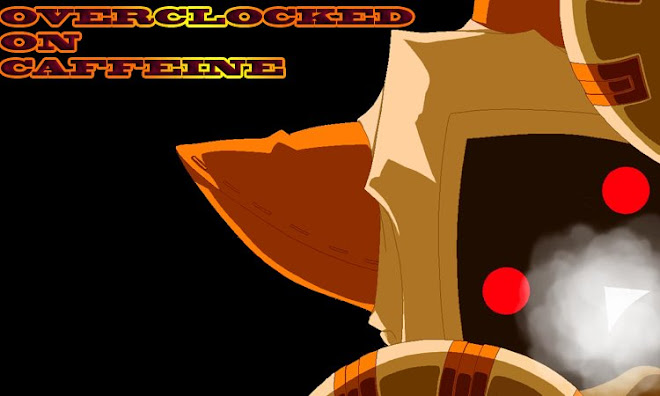Simon Clark - Blood Crazy
397 pages
I've always had a fascination for the end of the world. Don't get me wrong, I don't want to see the world destroyed - it's where I keep all my stuff - but the images, the iconography, all of it captivates me in a way nothing else does. I first read Blood Crazy at exactly the right time. The hero, Nick Aten ("Rhymes with Satan" as he likes to inform us) is 17, the exact same age I was at the time. He awakens one Sunday morning to find that the whole world has gone mad. Well, half of it at least: the adult half. Overnight, the adult population has somehow managed to convince itself that everyone 18 and under needs to die, painfully if at all possible. Nick swiftly finds himself in a community that, at its heart, has good intentions, but when things start to go wrong, they go wrong badly, and he finds himself having to cross the country to try and save everyone there from the oncoming horde of adults, and each other.
When I first read Blood Crazy, it was the best book in the world ever. I wouldn't credit it with kickstarting my interest in armageddon (which would be the best publishing blurb ever if it were true) but it was, most likely, one of the first. The problem is, my horizons have expanded since then. I've seen and read and even played more and more, raising the bar appropriately, and going back to revisit the book feels like just that - a step backwards. Right at the beginning, we find out that the book is being written by the main character, who promises right there and then that there will be no flowery language or purple prose. Then mentions casually how it's snowing like someone's torn a hole in the sky. Hmm. The book falls into the usual trap of Teenagers-Don't-Talk-Like-Thatism, but that's nothing unusual. The dialogue that never quite gels and prose that hits the wrong side of purple, on the other hand, could've been done a hell of a lot better.
The single worst fault in the book, however, is the exposition/explanation moment. Throughout the book, everyone has their own theories on why all the adults went mad, from EM radiation, to a biological attack from an enemy state to aliens to God smiting the wicked. In fairness, no theory is ever truly discounted as being completely lunatic, and some of the wilder ones are actually given a degree of credence, leaving you to come to your own conclusions. Then, towards the end, we're given something like a 50-60 page infodump that, despite an lack of actual, 100% honest-to-God explanations as to what happened, immediately becomes the most authoritative conclusion on how it all happened. Nothing wrong with that, though I preferred the idea of leaving it all up to you to decide the truth, it's how it's presented. For one thing, it takes too damn long to actually play out, for another, it's literally two people sitting in a room talking to each other over the course of a couple of days. Not the most thrilling of setups, by any standards. As for the big revelation itself? Go crack open a couple of books giving you in introduction to Carl Jung. That's pretty much got you covered. 'Underwhelming' is not the word, though considering what happens after 'deus ex machina' certainly applies.
Don't get me wrong, there's some excellent moments and scenes in the book - the causeway made of people, the attack on the convoy, motorway full of the crucified - but the book is damned by nostalgia. Revisiting it, I'm sad to say it's really not as good as I remembered - not a bad book, not by any stretch, just that, in the years since, I've read and seen so much better, a revisit would never have stood a chance.
Monday, June 22
Subscribe to:
Post Comments (Atom)




No comments:
Post a Comment